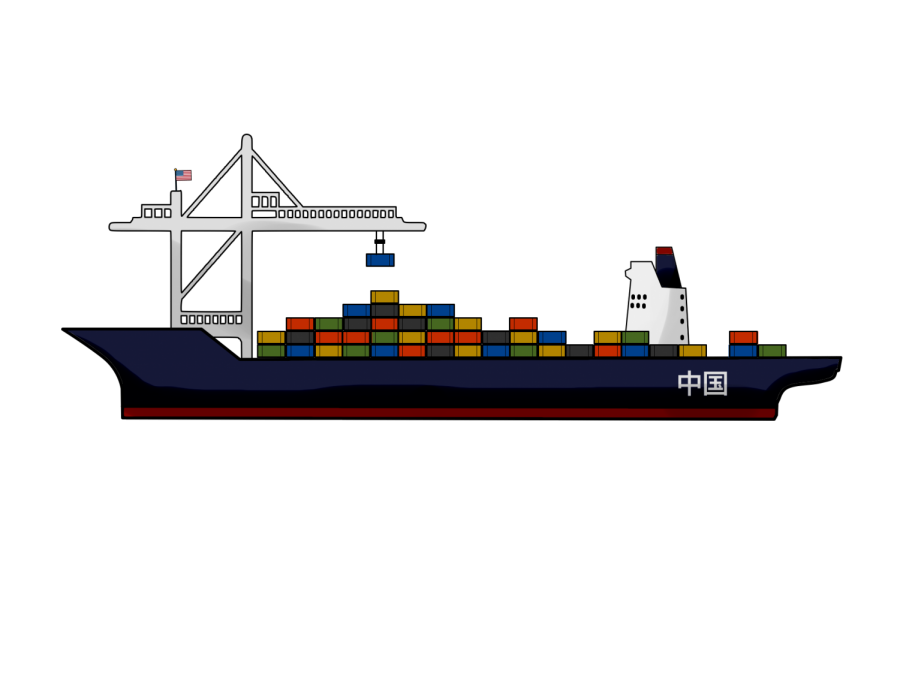Discussing Democracy: China
The United States has remained a dominant global power since the conclusion of WWII and an undisputed world leader since the collapse of the USSR. However, a new power is rising, and neither candidate is poised to stop it. China is now the second-largest economy in the world and, with a population of 1.2 billion, stands to become a global hegemon. Beijing has already begun to exert its power. China has territorial disputes with 17 of its neighboring states, unilaterally claimed the infamously ambiguous “Nine-Dash line” in the South China Sea, started the Belt and Road initiative and continues to violate well-established rules of international trade. To make matters worse, China remains committed to creating a homogenous Han Chinese state and has concentration camps in the western bounds of the nation. These “re-education camps” aim to eliminate Uighur Muslim and Tibetan ethnicities through forced sterilizations and cultural destruction. A few other examples of China’s concerning policies are that it regularly engages in technology theft and mass surveillance, and that it has begun a process of neo-colonization throughout Africa and Southeast Asia through debt entrapment.
The cumulation of these aggressive actions have hurt China’s standing in the eyes of the public. Today, 73% of U.S. adults say they have an unfavorable view of China, up 26 percentage points since 2018. This has made the United States’ response to the growing Chinese power a key point in this year’s election. President Donald Trump has continued to make commitments to send forth the full might of American tariffs and “unfavorable” trade deals to hit the Chinese government where it really hurts: the wallet. The president has run on a “America First” foreign policy plan, which puts America first and is less cognizant of the international field. His future plans rely on a continuation of the ongoing trade war between America and China. President Trump has stated in his 2020 goals that he plans to:
- Bring Back 1 Million Manufacturing Jobs from China
- Tax Credits for Companies that Bring Back Jobs from China
- Allow 100% Expensing Deductions for Essential Industries like Pharmaceuticals and Robotics who Bring Back their Manufacturing to the United States
- No Federal Contracts for Companies who Outsource to China Hold China Fully Accountable for Allowing the Virus to Spread around the World
Former Vice President Joe Biden has made commitments to re-enter the international community as a global leader. His administration claims that it would be best for all if the United States was at the head coordinating the international response as opposed to nations like Russia and China. Biden has promised to tackle the Chinese threat by building up a political alliance of different Asian countries and increasing the U.S. military presence in disputed territories like the South China Sea. Unfortunately, his foreign policy goals are fundamentally incompatible with his other policies.
Biden, like Trump, suffers from a fundamental misunderstanding of China’s foreign policy. As the United States becomes more isolationist and set on putting “America First,” a power vacuum is created. China has taken advantage of this by leading the creation of new free trade agreements such as the Trans-Pacific Partnership. China has also done this in Africa, where it has positioned itself as a former victim of “Western Imperialism” and created new trade deals with multiple African nations. Through a series of trade deals with the highly militaristic African nations, China has supplied them with surveillance and military equipment as well as a market to export African goods such as timber in return for ports and military bases.
Nations such as Portugal, Kazakhstan, Belarus and Greece have received Chinese loans to build new ports or renovate their aging economies, furthering their dependency on China. Chinese companies have begun investing in German car manufacturers, causing the German government no small deal of wariness, However, due to European Union rules on requiring unanimous decisions on multiple policies, these nations that are cozying up to China have begun destroying previous international conventions that are critical of China, such as the European Union Agency for Fundamental Rights. Under the Trump administration, isolationist policies have led to a loss of influence in foreign governments. A Biden presidency would suffer from the same faults if he were to set in place his “Buy American” economic policy; subsidies to industries that have heavy international competition are just as bad for our foreign influence as tariffs. While a completely free global market would lose American jobs and hurt the minority of manufacturing workers in this country, it is a necessary sacrifice if America wishes to have a monopoly on global power like it did throughout the 1990s and 2000s.





























